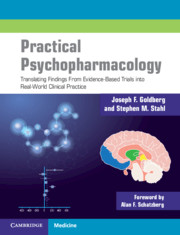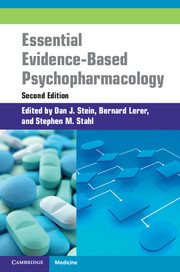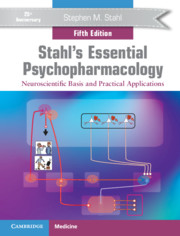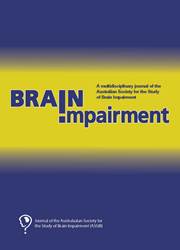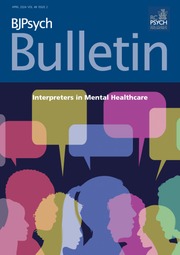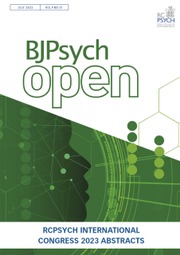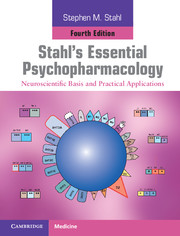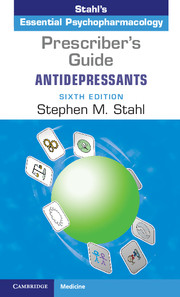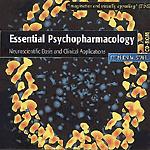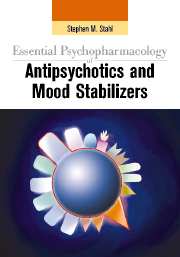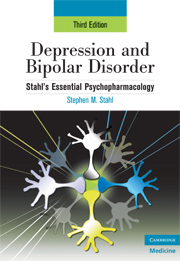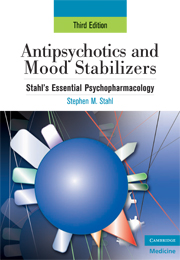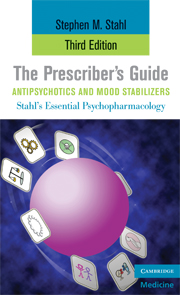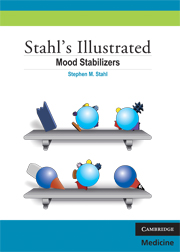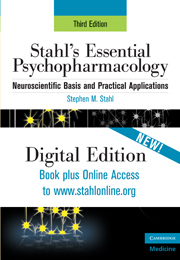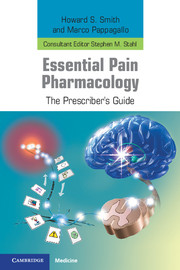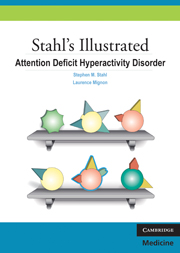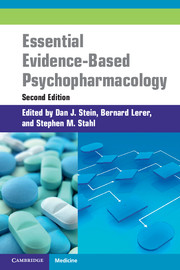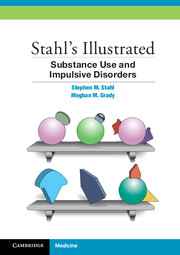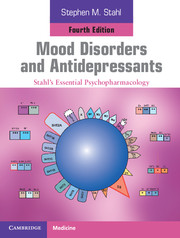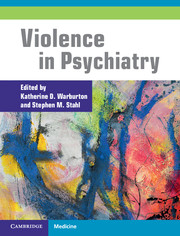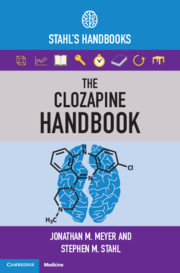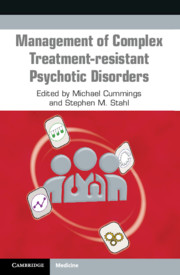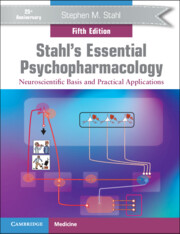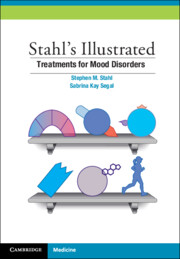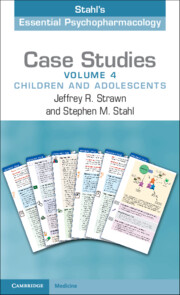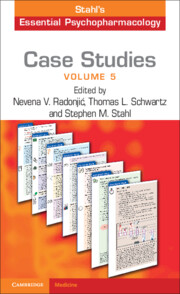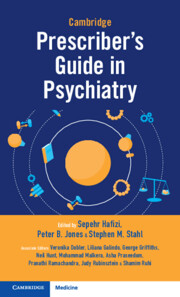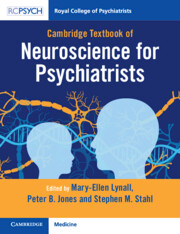Practical Psychopharmacology
Translating Findings From Evidence-Based Trials into Real-World Clinical Practice
£57.99
- Authors:
- Joseph F. Goldberg, Icahn School of Medicine at Mount Sinai, New York
- Stephen M. Stahl, University of California, San Diego
- Date Published: June 2021
- availability: In stock
- format: Paperback
- isbn: 9781108450744
£
57.99
Paperback
Other available formats:
eBook
Looking for an inspection copy?
This title is not currently available on inspection
-
Despite the lack of guidance available for practitioners, extensive polypharmacy has become the primary method of treating patients with severe and chronic mood, anxiety, psychotic or behavioral disorders. This ground-breaking new book provides an overview of psychopharmacology knowledge and decision-making strategies, integrating findings from evidence-based trials with real-world clinical presentations. It adopts the approach and mind-set of a clinical investigator and reveals how prescribers can practice 'bespoke psychopharmacology', tailoring care to the individualized needs of patients. Practitioners at all levels of expertise will enhance their ability to devise rationale-based treatments, targeting manifestations of dysfunctional neural circuitry and dimensions of psychopathology that cut across conventional psychiatric diagnoses. Presented in a user-friendly, practical, full-colour layout and incorporating summary tables, bullet points, and illustrative case vignettes, it is an invaluable guide for all healthcare professionals prescribing psychotropic medications, including psychiatry specialists, primary care physicians, and advanced practice registered nurses.
Read more- Focusing on how practising clinicians can distil information from clinical trials and apply findings to individual patients, readers will be able to render more personalized, individualized care and better understand rationales when choosing from among treatment options
- Bridges the gap between how pharmacotherapy occurs in clinical research trials and real-world practice so that clinicians feel more confident assessing patients, tracking outcomes, and determining when and why to implement pharmacotherapy changes across a range of psychiatric phenomena
- Incorporates neuroscience-based nomenclature to allow psychopharmacologists to better understand the mechanistic rationales for medications they use to treat a broad range of psychiatric conditions
Reviews & endorsements
'Psychopharmacology textbooks are typically either scholarly, endlessly long and inaccessible to clinicians, or clinician-friendly but with inadequate documentation for readers who want more detailed information. Somehow, Goldberg and Stahl's Practical Psychopharmacology combines the best of these two styles. It is astonishingly comprehensive with many Tables citing every relevant study while simultaneously providing the deep practical wisdom and experience of the two authors, both of whom are world class clinician-scholars. Practical Psychopharmacology also provides a sophisticated yet accessible review of the biological underpinnings of both psychopathology and medication effects. It does not just inform; it teaches the reader how to think about medications. This book will set the standard in our field for the foreseeable future.' Michael Gitlin, Distinguished Professor of Clinical Psychiatry, Director, Adult Division of Psychiatry, Director, Mood Disorders Clinic, Geffen School of Medicine at UCLA
See more reviews'The translation of clinical research findings into practice is fraught. The methodology of many trials is imperfect, complex, and opaque and hard to generalise to real world patients. Many critical questions are poorly answered by the extant evidence. The basic neuroscience is extraordinarily complex. This book is a Rosetta stone for translating this evidence into practice in providing a critical bridge for practising clinicians in distilling and interpreting the evidence into clear and coherent pragmatic management and prescribing recommendations. Written by two of the world's premier authorities, it is infused with a rare synergy of clinical wisdom and neuroscience expertise and is an essential resource for any practising prescriber of psychotropic agents.' Michael Berk, NHMRC Senior Principal Research Fellow; Alfred Deakin Professor of Psychiatry, School of Medicine, Deakin University and Barwon Health; Director, IMPACT, the Institute for Mental and Physical Health and Clinical Translation
'Drs. Goldberg and Stahl have reminded us that they are scientific artisans by creating a pragmatic, patient-centered set of guiding principles in clinical psychopharmacology. The emergence of newer psychopharmacologic treatments and expansion of indications for previously available agents has provided hope for identifying therapeutic avenues for patients to improve their general wellbeing, but also can feel daunting, overwhelming, and a source of entropy. Consequently, it is not uncommon for clinicians at point of care to be genuinely perplexed as to which treatments and capabilities are 'promising rather than prime-time'. The authors have deftly synthesized the scientific literature and have produced a book that is comprehensive, concise, and an invaluable source of decision support at the point of care for multidisciplinary practitioners who provide care to persons with mental disorders.' Roger S. McIntyre, Professor of Psychiatry and Pharmacology and Head, Mood Disorders Psychopharmacology Unit, University of Toronto, Canada
Customer reviews
Review was not posted due to profanity
×Product details
- Date Published: June 2021
- format: Paperback
- isbn: 9781108450744
- length: 610 pages
- dimensions: 247 x 190 x 26 mm
- weight: 1.31kg
- availability: In stock
Table of Contents
Part I. General Principles:
1. Core concepts of good psychopharmacology
2. Targets of treatment: categories versus dimensions of psychopathology
3. Interpreting and using the literature: integrating evidence-based trials with real-world practice
4. Placebo and nocebo effects
5. Tailoring the fit: moderators and mediators of treatment outcome
6. Complex regimens and rationale-based combination drug therapies
7. Laboratory values and psychiatric symptoms: what to measure, what not to measure, and what to do with the results
8. Pharmacogenetics: when relevant, when not
9. Cross-tapering and the logistics of drug discontinuation
10. Managing major adverse drug effects: when to avoid, switch, or treat through
11. Novel drug therapeutics: nutraceuticals, steroids, probiotics, and other dietary supplements
12. Human diversity and considerations in special populations
Part II. Targets of Pharmacotherapy:
13. Disordered mood and affect
14. Disorders of impulsivity, compulsivity, and aggression
15. Psychosis
16. Deficit states and negative symptoms
17. Anxiety
18. Addiction and the reward pathway
19. Trauma and posttraumatic stress disorder
20. Personality disorders
21. Cognition
22. Putting it all together
References
Index.
Sorry, this resource is locked
Please register or sign in to request access. If you are having problems accessing these resources please email [email protected]
Register Sign in» Proceed
You are now leaving the Cambridge University Press website. Your eBook purchase and download will be completed by our partner www.ebooks.com. Please see the permission section of the www.ebooks.com catalogue page for details of the print & copy limits on our eBooks.
Continue ×Are you sure you want to delete your account?
This cannot be undone.
Thank you for your feedback which will help us improve our service.
If you requested a response, we will make sure to get back to you shortly.
×
